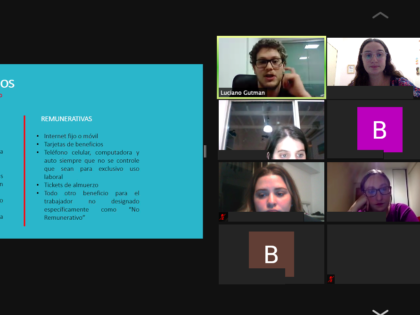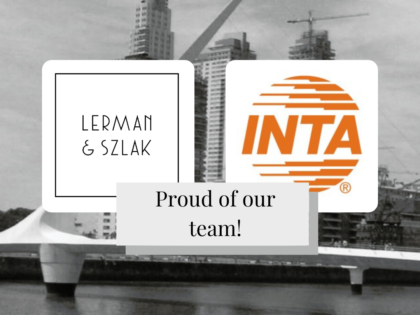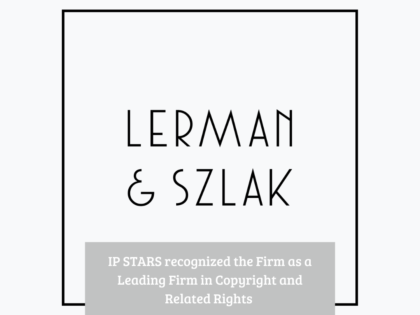Simplified Corporations: change in the ground rules during 2020

Since the entry into force of the Entrepreneurial Capital Support Law (ECP Law) in 2017, Simplified Corporations (or “SAS”, after its acronym in Spanish) have become the mostly chosen corporate structure for innovating enterprises in Argentina, mainly due to its low regulation and reduced costs. Although there were important challenges in its implementation, from the very beginning the SAS was proposed as a more lax and modern corporate structure, without the bureaucratic burden that weighed on the rest of the corporate types, and with the possibility of being incorporated in an agile and simple way.
The ECP Law was complemented at the local level by each Public Registry of Commerce. In Buenos Aires City, the complementary regulations applicable to corporate matters are passed by the General Inspection of Justice (IGJ”, after its acronym in Spanish), the agency in charge of the registration and control of Companies in Buenos Aires City.
As of 2020, the IGJ has changed its approach to SAS, substantially increasing the regulatory burden on them and moving from the deregulation paradigm to a regulatory one, based on the ideologically-motivated suspicion that these companies are used for fraudulent purposes. This change in the IGJ’s position regarding the SAS has strongly discouraged the incorporation of this type of companies.
The most relevant aspects of the general resolutions of the IGJ issued in relation to SAS during 2020 -applicable only to SAS incorporated in CABA- can be summarized as follows:
– A stronger informative and publicity burden at the time of incorporation of the SAS (Res. 3/2020). Since the enactment of this Resolution, the publication in the Government gazette in which the incorporation of the SAS is announced must state, in addition to the amount of the capital stock, the contribution of each shareholder, classes of shares and issuance modalities.
– The possibility of paying incorporation expenses of the SAS with its capital stock is banned (Res 9/2020).
– It is established that the capital stock of the SAS cannot be evidently inadequate for the corporate purpose (Res 9/2020). Although the ACE Law establishes that the minimum capital stock of the SAS cannot be less than twice the minimum legal worker´s wage, the IGJ may verify (and object its registration) the adequacy ratio between a company’s capital and its corporate purpose.
– It imposes the duty for SAS Administrators to provide guarantees under the same rules required for managers of limited liability companies or directors of corporations (Res 9/2020).
– It establishes the obligation for SAS that do not have a supervisor or supervisory board to establish a procedure that guarantees the shareholders’ right to information by digital means (Res 9/2020). The Resolution requires that such procedure must be provided for and regulated in the By-Laws and must guarantee the direct access by digital means of the shareholders to all the records of the corporate books.
– The SAS is required to submit before the IGJ the financial statements approved by the shareholders’ meeting (Res 9/2020). The shareholders’ meeting must be held within 4 months of the end of the fiscal year and the procedure must be filed with the IGJ within 15 days of the approval of the financial statements.
– Greater supervisory powers are vested upon IGJ with respect to the content of the articles of incorporation of the SAS regarding the shareholders’ right to information, restrictions to the preemptive subscription rights, mandatory nature of the share premium, right to recess, procedure to challenge shareholders’ meetings and appointment of authorities by cumulative vote (RG 9/2020).
– The possibility for one or more partners to sign the articles of incorporation with electronic signature has been abolished and only certified digital signatures are allowed (Res 17/2020).
– Administrators of the SAS who reside abroad are prohibited from appointing a local representative who is not also and Administrator of the SAS (Res 20/20). Originally, it was accepted that Administrators of the SAS could reside abroad, provided that one of them lives in Argentina. Those that didn´t were obligated to appoint a representative in the country. Under the new regulation, such representative may only be another Administrator of the Company, limiting the possibility of appointing other trusted persons to perform such function.
– The implementation of a cross-checking system with the Real Estate Property Registry is ordered in order to report on transactions involving real estate rights and involving a SAS (Res 22/20). The purpose of this regulation is to identify if there are Companies that, in the opinion of the IGJ, may be considered fraudulent for having as sole purpose the holding of real estate. In the event that it is verified that the company operates as a vehicle intended solely and exclusively to be the owner of real estate, legal action will be taken to impute the assets to the partners, or to dissolve and liquidate the SAS.
– Default By-Laws of SAS were amended (Res 23/20). The IGJ modified default SAS By-Laws in order to adjust them to the requirements arising from Resolution 9/20. The new model bylaws are considerably more extensive and complex.
– Fines are established for SAS and their legal representatives for reporting false corporate domiciles (Res 43/20 and 44/20). Based on these rules, the IGJ is empowered to apply fines of up to $100,000 to SAS and their legal representatives in case of detection that the registered office registered before the IGJ is false.
For further information or advice regarding the incorporation of companies please contact us at info@lermanszlak.com

































































































































